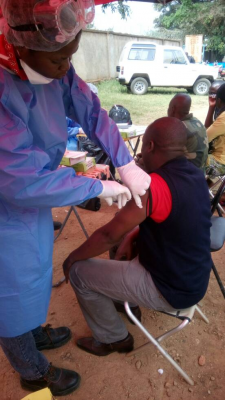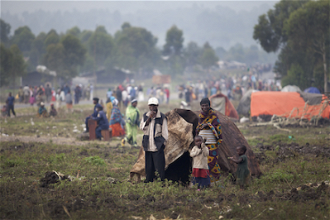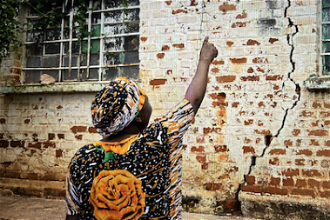DR Congo: Ebola Warning from front line as cases rise above 2,000

Ebola vaccination Beni General Hospital
Source: CAFOD
A doctor fighting the Ebola outbreak in Democratic Republic of the Congo (DRC) has warned that public mistrust is hampering efforts to halt the spread of the deadly disease.
"This is the first time we have seen this level of mistrust in the DRC," said Dr Emmanuel Mbuna Badjonga, based at the heart of the affected area in North Kivu province.
The number of people infected with Ebola since last August has passed 2,000, with more than 1,300 deaths, making this outbreak the second worst in history. It took 224 days to reach 1,000 cases, but only 71 days to double to 2,000.
"Up to yesterday (June 4), we were seeing 12 new cases a day," said Dr Badjonga. "So far we have kept the disease out of the main towns in the area, Butembo and Beni, but we can't treat people if they refuse to accept that Ebola exists. The most important thing is to raise awareness of Ebola any way we can, through verbal messages, billboards, posters, on the radio and through the churches."
The deadliest Ebola epidemic caused over 11,000 deaths between 2013 and 2016 in three West African countries. Health workers struggled to convince people of the need to avoid contact with victims of the disease, and rumours spread that bodies were being taken away for sinister purposes.
Similar obstacles are now being encountered in the DRC, said Dr Badjonga, whose work is supported by Caritas, the international Catholic aid network, and CAFOD, its affiliate in England and Wales. North Kivu, an area plagued by fighting among armed factions, has seen several attacks on health workers. Traditional healers, whose incomes have suffered from free provision of international aid, have also stirred up hostility against anti-Ebola efforts, the doctor added.
"The fact that the DRC outbreak has exceeded 2,000 cases shows the risk of complacency," said CAFOD spokesman for Africa emergencies, John Birchenough. "To some extent this crisis has crept up on us. It is under-reported because it has not yet reached urban areas or crossed borders, but without a determined and co-ordinated response, there is a danger that it might not be contained."





















